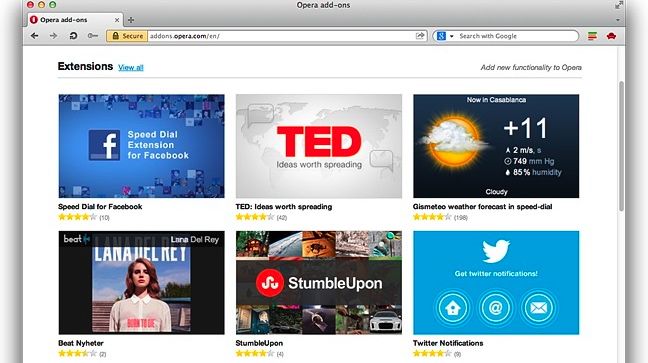Opera: Hey Presto - we're moving to WebKit!
Opera embraces WebKit. Other engines are available

Sign up for breaking news, reviews, opinion, top tech deals, and more.
You are now subscribed
Your newsletter sign-up was successful
Big news from Opera: not only has it reached an astonishing 300 million users, but it's dumping its own Presto engine and moving to WebKit instead.
That means future Opera browsers will use the same rendering engine as Safari, Chrome and many, many more. Opera for smartphones gets the new engine first, and the desktop browser and other products will follow shortly afterwards.
For the average internet user the change won't mean much. The most obvious change is that Opera users should benefit from better site compatibility, especially for mobile websites.
That's good news for Opera users, of course, but it demonstrates an issue with the wider web: the reason those websites haven't been displaying properly is that they've been designed for WebKit, not the web.
That's a problem. Here's hoping Opera's move doesn't make it worse.
One thing to rule them all
Imagine that there are loads of different browsers, but one of them dominates. You're a website developer, overworked, underpaid and under pressure, and you know that if the site works for the major browser, it'll work for most people - so you test for that browser, and that browser only. Maybe you even use features that only work on that particular browser.
In 1997 that browser was Internet Explorer. Today it's browsers based on WebKit.
Sign up for breaking news, reviews, opinion, top tech deals, and more.
That's a problem for several reasons. The first problem is that you're telling people running Firefox, or Internet Explorer, or connecting via consoles, or current or recent Operas, or any of a whole host of internet-enabled devices that you couldn't care less about them.
That's rude at the best of times, but it's downright daft if you're running any kind of online business. It's turning away customers, either by delivering a crappy experience, or by making it impossible to use all of the site's features (the same problem happens with sites built solely in Flash, which tell iOS users that the business doesn't want their cash, or with online shops whose layouts go to hell on mobile devices).
Coding for or testing on just one platform, no matter how good it is, is a terrible idea. As Bruce Lawson writes on Opera's developer blog, developers should "Keep coding to the standards, not to individual rendering engines": WebKit has excellent standards compliance, and if developers stick to the standards their sites should work on pretty much anything. However, it's important to "test across browsers - Opera, Firefox, Chrome, Safari and Internet Explorer" to make sure.
I hope that by moving to WebKit, Opera can make an even better browser - but I also hope that developers don't forget those of us whose browsers run different rendering engines. It's the World Wide Web, not the World Wide WebKit.

Contributor
Writer, broadcaster, musician and kitchen gadget obsessive Carrie Marshall has been writing about tech since 1998, contributing sage advice and odd opinions to all kinds of magazines and websites as well as writing more than twenty books. Her latest, a love letter to music titled Small Town Joy, is on sale now. She is the singer in spectacularly obscure Glaswegian rock band Unquiet Mind.